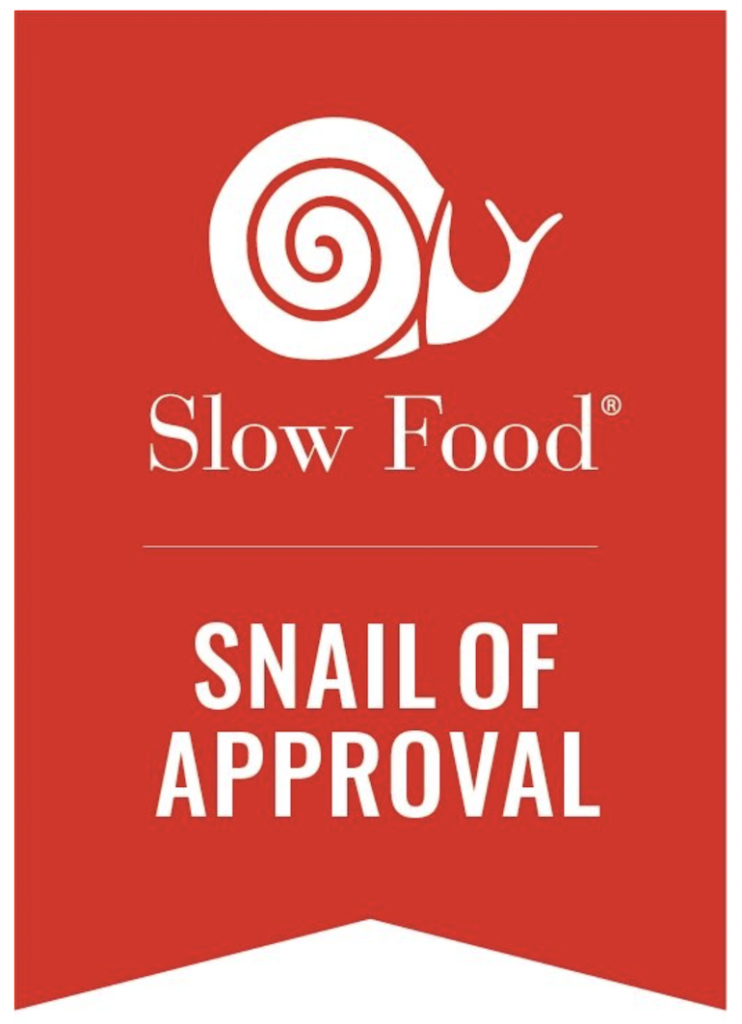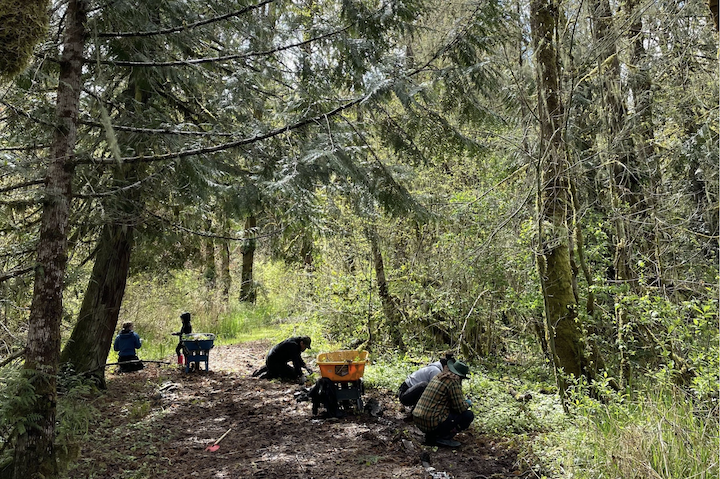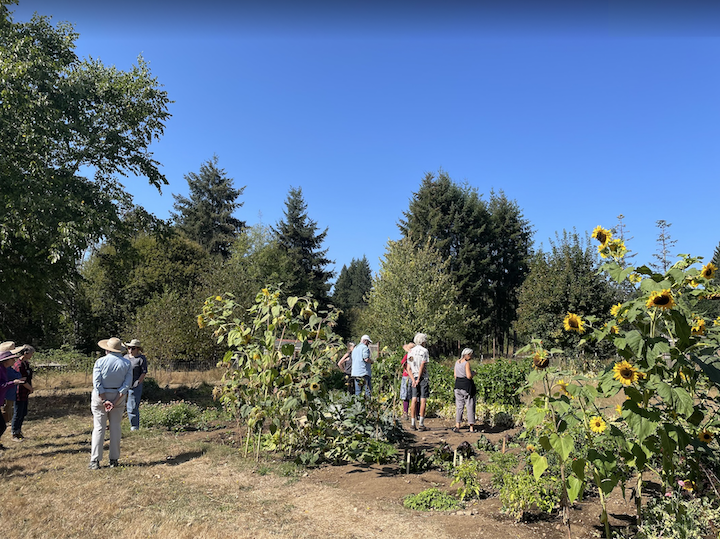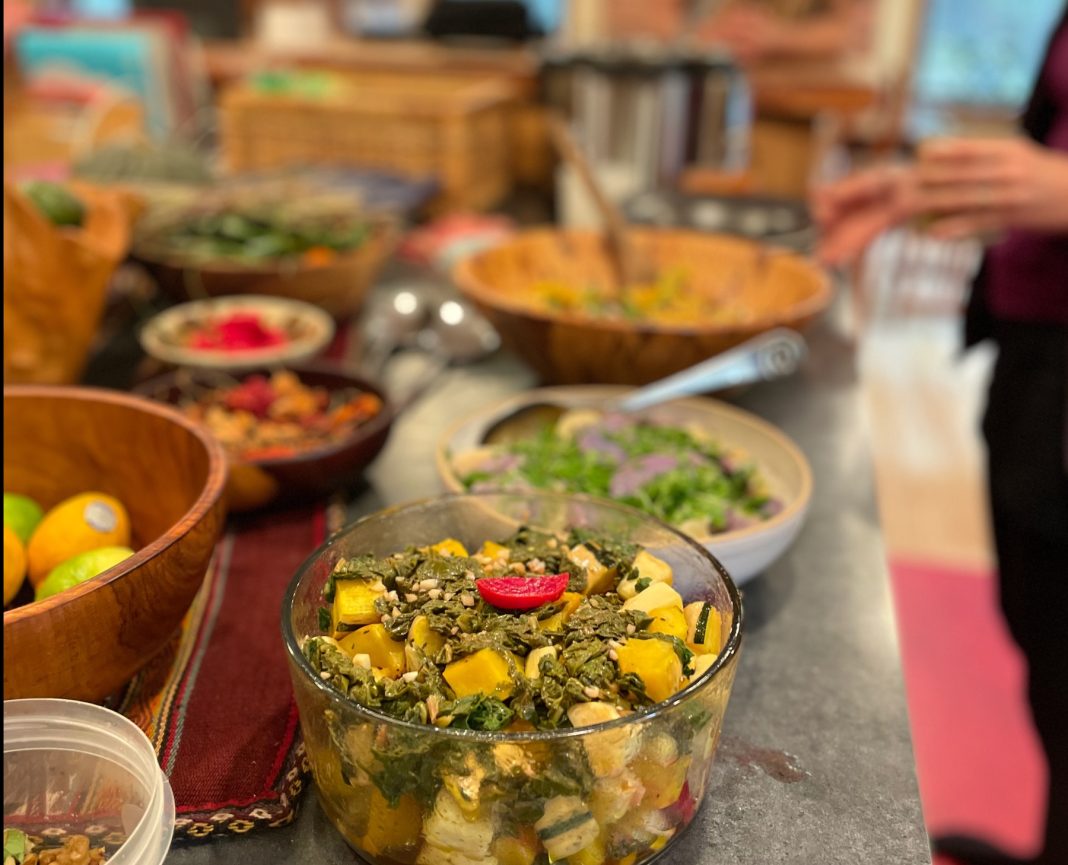The Slow Food Greater Olympia chapter is moving forward with two energizing projects. The first is the Snail of Approval award. It recognizes food businesses leading by example with Slow Food values. This includes the following areas: responsible sourcing, minimizing environmental impact, supporting cultural connections, community involvement, staff support and business values. The other activity is called the BIPOC (Black, Indigenous People of Color) Farmer Oral History Project. This is a partnership with faculty members and students at The Evergreen State College and the farmers themselves. These activities tie into the chapter’s commitment to its core values of equity, inclusion and justice.

Thurston County Snail of Approval Awardees
Slow Food Greater Olympia handles the application process for local businesses. The overall program is under the purview of Slow Food USA. To date, two businesses have received the designation.
Chicory Restaurant
Located in downtown Olympia, Chicory Restaurant was the first business to accomplish all the requirements for the Snail of Approval. Chicory’s comprehensive commitment to Slow Foods values was clear. Ingredients are sourced from nearby farms, ranches, fisheries and wineries. This compromises about 70% of the food served. Chicory highlights foods that grow well in this area. The business prioritizes fair labor practices, minimizing waste, and being active and generous within the community. Of course, it’s also about serving tasty food!

Colvin Ranch
Located in Tenino, Colvin Ranch is a fifth-generation, woman-run cattle ranch. Cattle are born and raised on grass and winter hay. All are free of antibiotics, hormones and additives. You can find red and black angus and crossbreed cattle in the pastures. Native and endangered wildlife are allowed to flourish with sustainable grazing practices. Colvin Ranch donates beef to the local foodbank as well as hosts workshops and ranch visits. This is another place to find quality, fine-tasting food.
Snail of Approval Application Information
Regional Slow Food chapters in Western Washington have joined together to include Whatcom, Skagit, Skokomish, King, Pierce, Thurston and Lewis counties. Snail of Approval is awarded to food producers who contribute to the quality, authenticity, and sustainability of our local food systems and are well regarded by their peers. Businesses may be nominated or may self-apply. The award is based on evaluations focused on the following six criteria:
- Sourcing
- Environmental Impact
- Cultural Connection
- Community Involvement
- Staff Support
- Business Values
Businesses can be restaurants, cafes, bakeries, caterers, coffee shops, food trucks, markets, farms, farm stands, ranches, fisheries, bars, breweries, wineries, distilleries, and cooking schools. The business must have been in operations for at least one year and produce and/or offer food for public consumption. You can check out the application here.
When a business receives a score of at least 56 out of 128 points, it will be contacted by a member of the Snail Approval Committee for a 30-minute virtual follow-up interview. The committee then presents the information to the local chapter for a final decision. Those businesses that score under 56 may want to work with the Greater Olympia Slow Food to learn ways to reach this goal.
Award recipients can display an official Snail of Approval window decal and receive digital assets for menus, signage and other digital platforms. There will also be a listing on the national Slow Food USA’s map and directory.
BIPOC Farmer Oral History Project
How does a community acknowledge and remember people and their stories? Launched during the pandemic, the BIPOC Farmer Oral History Project was started to collect, write, publish and archive stories about Black, Indigenous, People of Color who ran farms. The project includes historical and present-day farmers of color in our South Sound region. You can read these narratives here.

What is Slow Food?
Slow Food emerged in Italy is 1989, to contrast the culture of fast food and to keep local food traditions and cultures alive. It is about changing the world through food choices that look at the ways the food is cultivated, produced and distributed. Slow Food is not meant to be expensive or out-of-reach eating, but rather connecting people to what they eat and why. The Slow Food Great Olympia chapters advocates for sustainability, biodiversity, and equity in the food system. This is accomplished by supporting local food producers, hosting educational events and encouraging people to grow, purchase and eat local and seasonal foods.

Getting Involved with Greater Olympia Slow Food
“We would love to have you join us in helping with projects of award interviews or the BIPOC Farmer projects,” encourages Jenni Crain, board chair. There are applications to read and stories to tell. “It’s a wonderful organization,” she adds. You are encouraged to become a member and get the newsletter which gives you access to national, regional and local events as well as keeping you connected to a vibrant community that places the highest value on good, clean, fair food for everyone. Learn more on the Slow Food Greater Olympia website.





















































